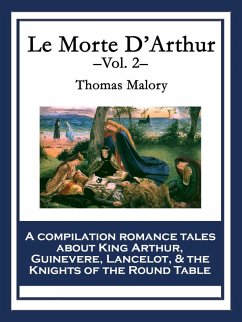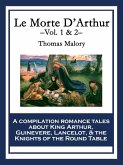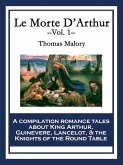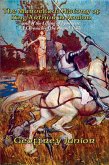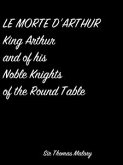Le Morte d'Arthur (originally spelled Le Morte Darthur, Middle French for "the death of Arthur") is a compilation by Sir Thomas Malory of Romance tales about the legendary King Arthur, Guinevere, Lancelot, and the Knights of the Round Table. The book interprets existing French and English stories about these figures, with some of Malory's own original material.
Dieser Download kann aus rechtlichen Gründen nur mit Rechnungsadresse in A, D ausgeliefert werden.

